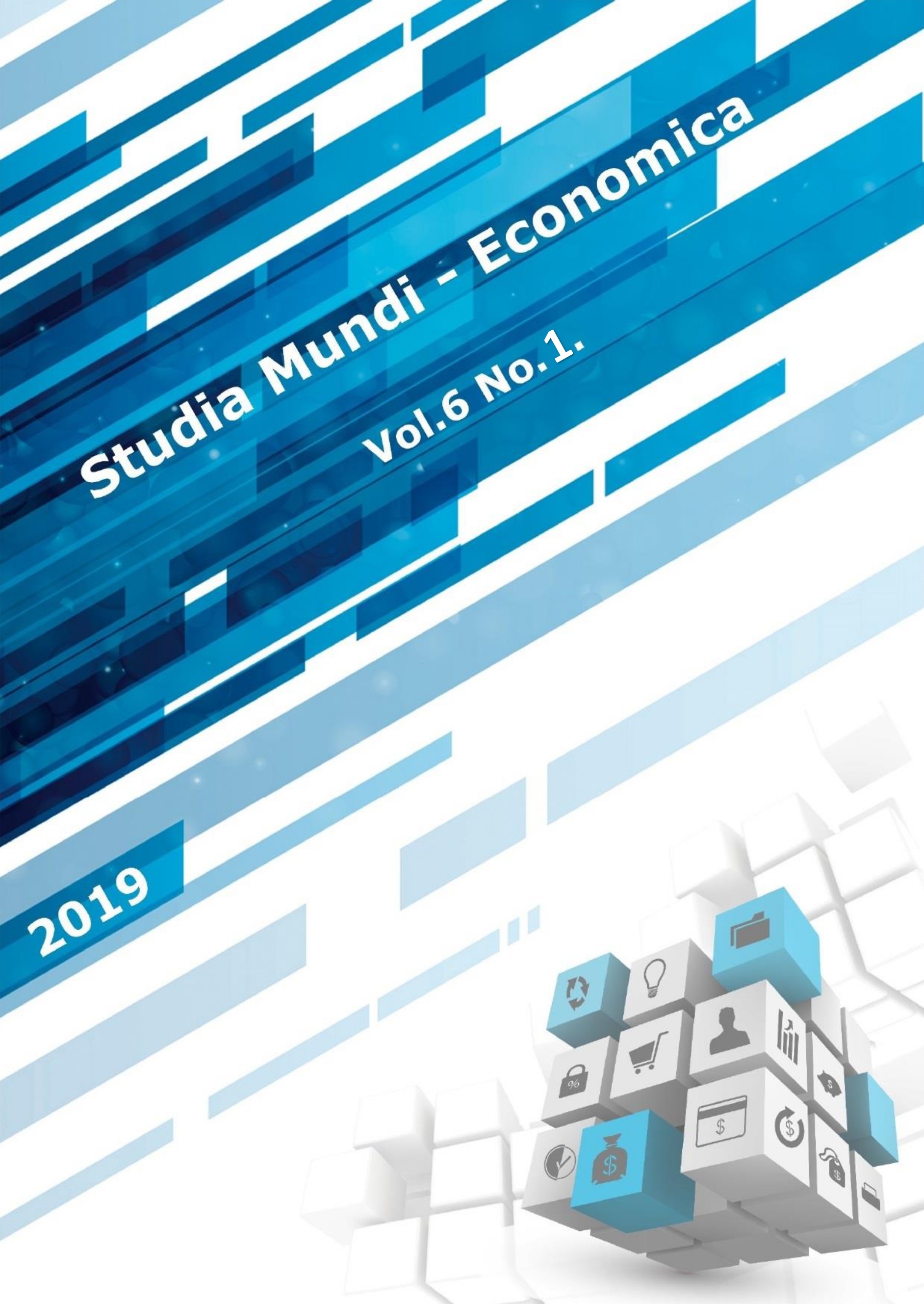The adaptation possibilities of sustainable production system best practices to the hungarian rural environment – case study of an energy production business model
DOI:
https://doi.org/10.18531/Studia.Mundi.2019.06.01.125-137Kulcsszavak:
business model, impact investment, REScoop, community energy, energy democracyAbsztrakt
The current paper describes a business model that contributes to people’s self-sufficiency in the field of energy production. The current society is in a position to depend on decision makers and companies in terms of used energy resources and their prices. Though renewable energies have become popular lately, many people face obstacles in order to employ them. The aim of the research is to introduce a business model which answers this customer need and could be interpreted to different economic circumstances. The presented business model has been elaborated according to the recent Dutch business environment as a green entrepreneurial start[1]up. This study deliberately avoids the detailed description of the business plan and rather highlights the core concept based on business modelling principles. This form of demonstration equips future entrepreneurs to adapt the model to certain conditions. The main message of this article is the matching pain-gain relations of certain social groups. On one hand, the local communities seeking to go energy independent. On the other hand, people who would like to conduct impact investment.
Hivatkozások
Amit, R. - Zott, C. (2012): Creating Value Through Business Model Innovation. MIT Sloan Management Review, 53 (3), 41-49
Arabali, A. – Ghofrani, M. – Etezadi-Amoli, M. – Fadali, M. S. (2013): Stochastic Performance Assessment and Sizing for a Hybrid Power System of Solar/Wind/Energy Storage. IEEE Transactions on Sustainable Energy, 5 (2), 363-371. DOI: http://dx.doi.org/10.1109/TSTE.2013.2288083
Blank, S. (2012): The Startup Owner’s Manual: The Step-By-Step Guide for Building a Great Company. K&S Ranch, 608 p
Brown, C. – Miller, S. (2008): The Impacts of Local Markets: A Review of Research on Farmers Markets and Community Supported Agriculture (CSA). American Journal of Agricultural Economics, 90 (5), 1298-1302. DOI: http://dx.doi.org/10.1111/j.1467-8276.2008.01220.x
Burand, D. (2015): Resolving Impact Investment Disputes: When Doing Good Goes Bad. Washington University Journal of Law & Policy, 48, 55-87
Choi, N. – Majumdar, S. (2014): Social entrepreneurship as an essentially contested concept: Opening a new avenue for systematic future research. Journal of Business Venturing, 29 (3), 363-376. DOI: http://dx.doi.org/10.1016/j.jbusvent.2013.05.001
Cortese, A. (2011): Locavesting: The Revolution in Local Investing and How to Profit From It. Wiley, 240 p.
Duuren, E. – Plantinga, A. – Scholtens, B. (2016): ESG Integration and the Investment Management Process: Fundamental Investing Reinvented. Journal of Business Ethics, 138 (3), 525-533. DOI: http://dx.doi.org/10.1007/s10551-015-2610-8
Fogarassy, Cs. – Horvath, B. – Magda, R. (2017a): Business Model Innovation as a Tool to Establish Corporate Sustainability. Visegrad Journal on Bioeconomy and Sustainable Development, 6 (2), 50-58. DOI: http://dx.doi.org/10.1515/vjbsd-2017-0009
Fogarassy, Cs. – Horvath, B. – Kovacs, A. – Szoke, L. – Takacs-Gyorgy, K. (2017b): A Circular Evaluation Tool for Sustainable Event Management – An Olympic Case Study. Acta Polytechnica Hungarica, 14 (7), 161-177. DOI: http://dx.doi.org/10.12700/APH.14.7.2017.7.10
Hebb, T. (2013): Impact investing and responsible investing: what does it mean? Journal of Sustainable Finance & Investment, 3 (2), 71-74. DOI: http://dx.doi.org/10.1080/20430795.2013.776255
Korten D. C. (1995): When Corporations Rule the World. Berrett-Koehler Publishers, 386 p
Lasi, H. – Fettke, P. – Kemper, H. G. – Feld, T. – Hoffmann, M. (2014): Industry 4.0. Business & Information Systems Engineering, 6 (4), 239-242. DOI: http://dx.doi.org/10.1007/s12599-014-0334-4 1
Liu, C. Z. – Au, Y. A. – Choi, H. S. (2014): Effects of Freemium Strategy in the Mobile App Market: An Empirical Study of Google Play. Journal of Management Information Systems, 31 (3), 326-354. DOI: http://dx.doi.org/10.1080/07421222.2014.995564
Magda, R. (2011): A megújuló és fosszilis energiahordozók szerepe Magyarországon [The role of renewable and fossil energy source in Hungary], Gazdálkodás, 55 (2), 153- 165
Martinez, C. (2017): From Commodification to the Commons: Charting the Pathway for Energy Democracy. In: Fairchild, D. – Weinrub, A. (eds) Energy Democracy, 21- 36, Island Press. DOI: http://dx.doi.org/10.5822/978-1-61091-852-7_2
Mort, G. S. – Weerawardena, J. – Carnegie, K. (2003): Social entrepreneurship: towards conceptualisation. International Journal of Nonprofit and Voluntary Sector Marketing, 8 (1), 76-88. DOI: http://dx.doi.org/10.1002/nvsm.202
NREL. (2012): Life Cycle Greenhouse Gas Emissions from Solar Photovoltaics. National Renewable Energy Laboratory, 2 p
Oosterwalder, A. – Pigneur, Y. (2010): Business Model Generation: A Handbook for Visionaries, Game Changers, and Challengers. John Wiley and Sons, 288 p
Rifkin J. (2014): Zero Marginal Cost Society. Palgrave MacMillan Trade, 368 p
Rijpens, J. – Riutort, S. – Huybrechts, B. (2013): Report on REScoop Business Models. EMES network and Centre for Social Economy, University of Liege, 23 p
Ritzer, G. (2015): Prosumer Capitalism. The Sociological Quarterly, 56 (3), 413-445. DOI: http://dx.doi.org/10.1111/tsq.12105
Shuman, M. H. (2000): Going Local: Creating Self-Reliant Communities. Routledge, 336 p
Stock, T. – Seliger, G. (2016): Opportunities of Sustainable Manufacturing in Industry 4.0. Procedia CIRP, 40, 536-541. DOI: http://dx.doi.org/10.1016/j.procir.2016.01.129
Souto, J. E. (2015): Business model innovation and business concept innovation as the context of incremental innovation and radical innovation. Tourism Management, 51, 142-155. DOI: http://dx.doi.org/10.1016/j.tourman.2015.05.017
Tarhan, M. (2015): Renewable Energy Cooperatives: A Review of Demonstrated Impacts and Limitation. Journal of Entrepreneurial and Organizational Diversity, 4 (1), 104-120
Yum, H. – Lee, B. – Chae, M. (2012): From the wisdom of crowds to my own judgment in microfinance through online peer-to-peer lending platforms. Electronic Commerce Research and Applications, 11 (5), 469-483, DOI: http://dx.doi.org/10.1016/j.elerap.2012.05.003
Letöltések
Megjelent
Folyóirat szám
Rovat
License
Copyright (c) 2019 Balint Horvath

This work is licensed under a Creative Commons Attribution-NonCommercial-NoDerivatives 4.0 International License.
A folyóirat Open Access (Gold). Cikkeire a Creative Commons 4.0 standard licenc alábbi típusa vonatkozik: CC-BY-NC-ND-4.0. Ennek értelmében a mű szabadon másolható, terjeszthető, bemutatható és előadható, azonban nem használható fel kereskedelmi célokra (NC), továbbá nem módosítható és nem készíthető belőle átdolgozás, származékos mű (ND). A licenc alapján a szerző vagy a jogosult által meghatározott módon fel kell tüntetni a szerző nevét és a szerzői mű címét (BY).






